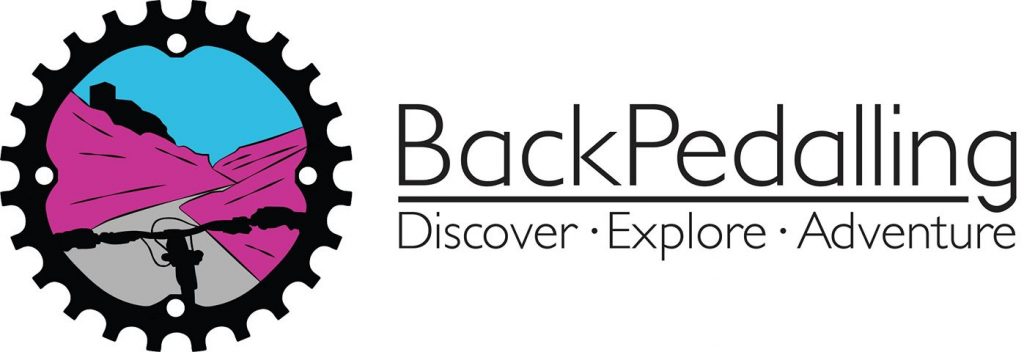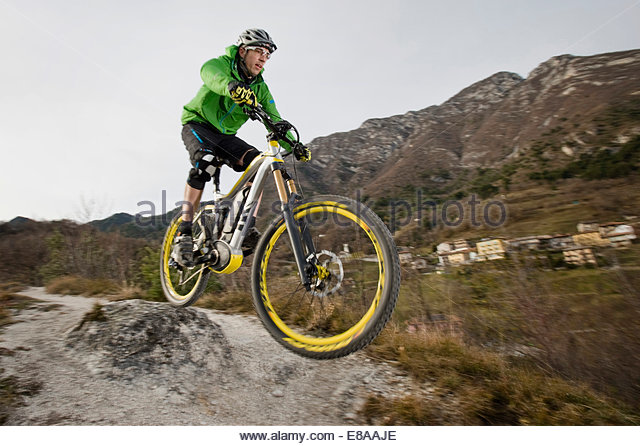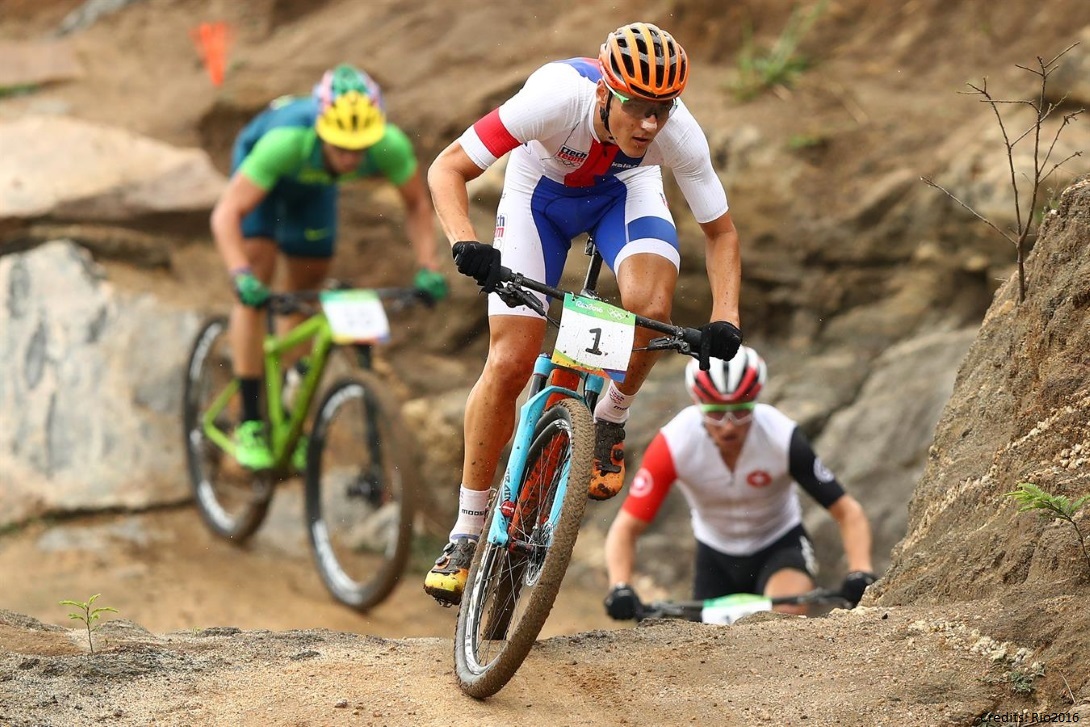E-Bikes are taking over the world. What are we going to do about it?
What the hell is an E-bike? Sadly, they are not a range of Yorkshire bikes. Instead, they are bikes where a motor assists your pedalling. Power assisted means that the motor only works when the pedals go round. So, no pedalling=no power. Simple really.

Fat E-bike
Like it or not, if you are keeping up with current mountain biking affairs, you need to have thought about them. If you want to think of yourself as abreast of current developments, then you probably ought to have an opinion about them.
Which brings me to cheating…
Disgruntled of South Angryton
I read a letter recently in a popular mountain biking magazine on the subject. The writer definitely had an opinion on E-bikes:
“E-bikes are not real mountain bikes and the people who ride them are not real mountain bikers.”
This definition of people who are different from yourself as “not real” whatever, comes up a lot in situations far more serious than mountain biking (usually associated with unpleasantly narrow definitions of belonging and nationalism). It really raised my hackles.
It also made me think: who are you to set the rules and tell me how to ride my bike?
“Road cyclists would not tolerate their world being invaded by cheating E-bikes”
Now we come to it: they’re bad because it’s cheating. Cheating whom, exactly?
The rules
There are always rules for things. A group of roadies have compiled a set of ever-so-slighty tongue in cheek Rules for riding on the road. They’re worth reading if you haven’t already.
For the purposes of mountain biking there are rules, they come in a set of broad categories:
Safety rules
These are rules that enable you to get home in the same number of pieces as you set off. Things like: make sure your bike is working properly, have a plan for if someone has an accident, check the weather and plan accordingly, don’t ride off a cliff, don’t ride the wrong way along a trail centre trail.
They’re fairly self-evident and it’s a good idea to follow them.
Legal rules
In Britain, legal rules mostly boil down to access: where are you allowed to ride? Bridleways are fine. Footpaths are not. If it isn’t a road, bridleway, BOAT or restricted by-way then the chances are you’re not supposed to be there. You can also count things like closing gates, not chewing up trails, slowing down for pedestrians and horses.
Following these rules minimises the chance you’ll get into trouble with the law. It’s a good idea to follow them.
Social rules
Now we’re into etiquette. We’re talking about things like: be nice to each other, offer to help people who might need it, don’t go haring past someone who is slower.
These rules are there to make everyone’s life that little bit better because we’re basically being nice and looking out for each other.
Level playing-field rules
This is really what disgruntled is talking about. The bikes aren’t breaking any safety rules, they’re not against the law, social rules are largely down to the person in the saddle rather than the bike.
So what rules has the E-biker broken? They’re cheating. They’re gaining an unfair advantage. They’ve broken the rules that keep the playing-field level.
What?
Competition. Competition is about comparing things to see which one is better. In order to make it a fair comparison you need rules to ensure that you are comparing like with like. If you are comparing how fast two cyclists are, then you need rules to ensure that you’re comparing the two cyclists.
This is where being motor assisted breaks the rules: It’s unfair to compare a cyclist using only their legs against one who has a motor. Motors are big news in the worlds of road and cyclocross racing.
So they’re cheating then? Only if you’re racing. Only if you want to compare one rider with another. Only if the first person across the line is important.
You might have noticed that I didn’t appear at the Olympics this year.

If you’re not racing then you can’t possibly be cheating
Simple really. If your bike is safe, if you’re following the law and you’re polite then you’re grand. From where I’m sitting, my charges are already cheating by not carrying the havy leader’s bag that the safety, legal and social rules dictate I carry with me.
I’m not racing. Yes, I Strava my rides but I’m not going to get that upset if someone goes faster than me because I’m really not racing. In this case, the only person I’m competing with is myself.
So, if I’m not racing then you’re not cheating on your E-bike. We can go ride together.
It’s far more important to me that you’re enjoying yourself.




